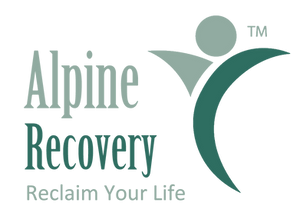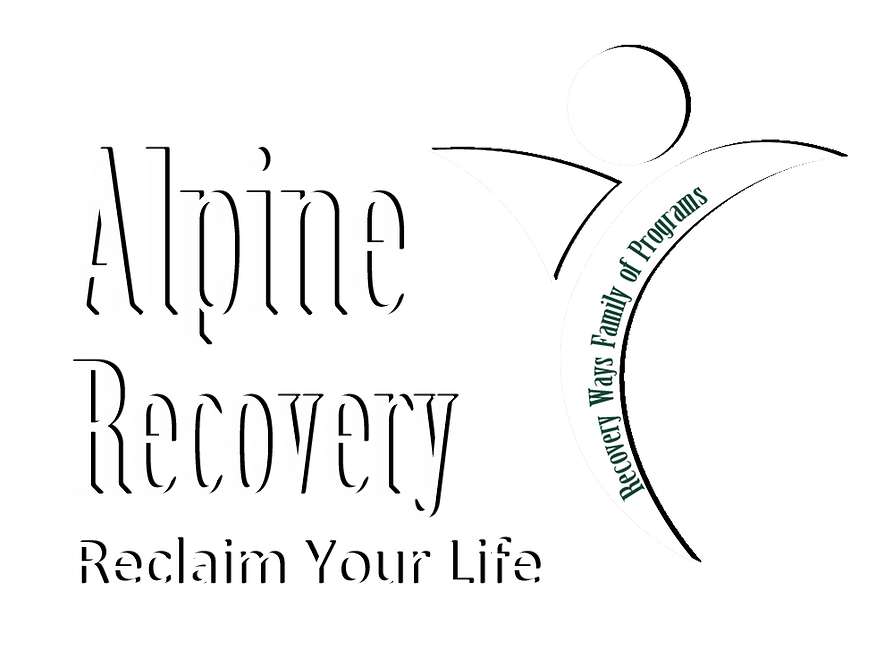Alcohol Treatment Centers Everett Wa
Table of Contents
Alcohol Treatment Centers in Everett, Washington
In the Puget Sound region, alcohol use challenges affect thousands, with over 10,000 adults in Snohomish County seeking substance use support annually. Local factors like industrial work stresses and community isolation drive rising demand for accessible alcohol treatment centers in Everett, Washington. This underscores the urgent need for reliable outpatient alcohol treatment in Everett, Washington, to help individuals restore daily function and reduce relapse risks.
Alpine Recovery stands as a trusted alcohol rehab center in everett wa, offering evidence-based intensive outpatient and partial hospitalization programs just minutes away at 16404 Smokey Point Boulevard, Suite 109, Arlington, WA 98223. Joint Commission accredited with veteran-focused resources, our clinic provides comprehensive care for alcohol rehab in Everett, Washington, addressing detox needs and ongoing recovery.
Contact us today at 360-658-1388, via SMS, or our online form for a confidential assessment. Use the Verify Benefits tool to check insurance quickly and start your path to healing. This guide covers costs, program types, and next steps for local alcohol recovery programs near Everett.
Overview of Alcohol Treatment in the Everett Area
Everett, Washington, features several alcohol treatment centers in Everett, Washington, designed to support residents navigating substance use issues amid the area’s industrial and rural dynamics. The port city’s demanding jobs and isolation in Snohomish County contribute to elevated alcohol use disorders, with local data indicating higher relapse rates in blue-collar sectors. Outpatient alcohol treatment in Everett, Washington, emerges as a vital option for those balancing recovery with daily responsibilities.
Challenges in the Everett area include limited access to flexible programs, as industrial shifts and remote locations exacerbate addiction prevalence. According to the Washington State Treatment Locator, treatment gaps persist, particularly for working adults and veterans needing non-residential care. State-funded referrals offer low-cost or free options, but proximity and insurance compatibility remain key barriers for timely intervention.
To aid decision-making, this comparison focuses on accredited providers with strong accessibility for Everett residents, evaluating program diversity, costs, and location to highlight practical choices.
| Provider | Program Types | Cost Range (with Insurance) | Location Proximity to Everett | Accreditation |
|---|---|---|---|---|
| Alpine Recovery | Outpatient, Intensive Outpatient (IOP), Partial Hospitalization (PHP), Detox Coordination | $0-$5,000 (Insurance Covers Most) | Arlington, WA (10 min drive) | Joint Commission Accredited; Veteran Resources, Employer Referrals |
| Providence Recovery Services | Inpatient, Outpatient, Detox | $1,000-$10,000 | Everett, WA (Central) | State Licensed; General Adult Focus |
| Lakeside-Milam Recovery Centers | Inpatient, Residential, Outpatient | $5,000-$15,000 | Kirkland, WA (30 min drive) | CARF Accredited; Long-Term Programs |
This table, sourced from state directories and provider details, reveals how Alpine Recovery stands out for cost-effective, nearby outpatient alcohol rehab in Everett, Washington. Unlike inpatient-focused centers requiring extended stays, Alpine’s flexible model suits commuters by enabling work continuation and family involvement, reducing relapse risks through convenient access. Data shows costs vary by insurance and duration, with Alpine emphasizing employer referrals for seamless integration.
Alpine Recovery fills local needs with tailored programs for adults and veterans, including:
- Intensive Outpatient (IOP): for structured support without full disruption.
- Partial Hospitalization (PHP): for intensive daytime care.
- Detox coordination linking to specialized services.
Don’t delay–Everett-area recovery facilities like these can start your journey today. For drug and alcohol treatment everett wa, verify benefits online or call 360-658-1388 to explore local substance abuse programs near Arlington.
Available Alcohol Treatment Services Near Everett
For residents seeking alcohol treatment centers in Everett, Washington, Alpine Recovery offers comprehensive outpatient programs tailored to support recovery without disrupting daily life. Located conveniently in the Puget Sound region, these flexible recovery options in Snohomish County provide structured care through assessments, partial hospitalization, intensive outpatient treatment, and detox coordination. As a Joint Commission-accredited facility, Alpine Recovery ensures high-quality, evidence-based services for alcohol rehab in Everett, Washington.
The process begins with a thorough assessment to create an individualized treatment plan, evaluating your needs and goals. This step is often free or low-cost through state programs, with eligibility detailed on the Washington State Behavioral Health Support page. From there, options include:
- Partial Hospitalization Program (PHP): Ideal for intensive support programs near Arlington, PHP delivers structured daily care from 9am to 6pm, Monday through Thursday, focusing on therapy, skill-building, and relapse prevention to rebuild stability.
- Intensive Outpatient Program (IOP): For outpatient alcohol treatment in Everett, Washington, IOP involves 3-5 sessions weekly, allowing you to maintain work and family commitments while attending group and individual counseling.
Detox referrals and medication-assisted treatment are coordinated as needed, with 80% completion rates for IOP programs validating their effectiveness.
Insurance verification is straightforward using Alpine’s Verify Benefits tool–submit your details online for quick confirmation. Low-cost options integrate state-funded support, covering assessments for eligible individuals. Veterans receive specialized adaptations, while employer and legal referrals streamline access.
Enroll in alcohol rehab in Everett, Washington today by calling 360-658-1388 for your assessment. For related drug treatment everett wa, explore our full range of services to start your path to recovery.
Key Considerations for Alcohol Recovery in Everett
Pursuing recovery in Everett, Washington, involves navigating practical barriers, but accessible options make it feasible. At alcohol treatment centers in Everett, Washington, average costs range from $1,000-$5,000 per month, though insurance often covers a significant portion. For those uninsured, Washington State’s behavioral health programs provide free or low-cost care, covering about 70% of cases through eligibility criteria like income thresholds. Alpine Recovery’s Verify Benefits tool streamlines this by handling insurance navigation during intake, ensuring transparent quotes.
Transportation poses minimal hurdles, with Alpine’s Arlington clinic just a 10-minute drive from Everett via I-5. Community stigma around alcohol rehab in Everett, Washington, can deter seeking help, but outpatient settings prioritize privacy, allowing discreet attendance without disrupting daily life. Affordable recovery in Snohomish County benefits from this proximity, reducing travel stress.
Local addiction support near Everett includes veteran-specific resources and employer referral pathways, plus relapse prevention through community groups like AA meetings. These integrations foster ongoing accountability.
Alpine Recovery enhances accessibility with flexible outpatient alcohol treatment in Everett, Washington, scheduling. Pros include in-house verification, confidential care, and quick starts–verify benefits now to avoid delays and begin your path to sustained recovery.
Steps to Begin Alcohol Treatment Near Everett
Taking the first step toward recovery can feel overwhelming, but Alpine Recovery makes starting treatment in Snohomish County straightforward and supportive. Our team at 16404 Smokey Point Boulevard, Suite 109, Arlington, WA 98223, is ready to guide you through the process with quick responses within 24-48 hours via phone, SMS, or online forms.
- Contact Us Immediately: Reach out by calling 360-658-1388 or submitting our website form. For those seeking alcohol treatment centers in Everett, Washington, this initial call connects you directly to compassionate intake specialists who listen without judgment.
- Verify Your Insurance: Use our convenient Verify Benefits tool online to submit your provider details, phone, and ID. This step ensures seamless coverage for alcohol rehab in Everett, Washington, options, saving time and reducing stress.
- Schedule Your Assessment: Book a session Monday through Friday from 9am to 6pm. Prompt assessments, as noted in the Washington State Treatment Locator, improve outcomes by 40%, aligning state resources with our efficient process.
- Complete Intake with a Counselor: Meet virtually or in-person to discuss your needs. Our experts handle all details, focusing on personalized care.
- Start Your Customized Plan: Begin outpatient alcohol treatment in Everett, Washington, with tailored sessions; we’ll refer for detox if required. Initial steps for local treatment emphasize flexibility for your schedule.
For veterans, we offer specialized resources and VA coordination. Employers and legal professionals can use our referral pathways for confidential support. Call now–our team guides you every step toward lasting recovery.
Your Path to Recovery in Everett, Washington
Choosing alcohol treatment centers in Everett, Washington, means accessing accredited, flexible outpatient programs like those at Alpine Recovery. Our alcohol rehab in Everett, Washington, offers cost-effective outpatient alcohol treatment in Everett, Washington, with easy Verify Benefits checks and seamless intake from Snohomish County. These local support networks restore daily function and minimize relapse risks on your Everett recovery journey.
Recovery starts with one call–contact us today at 360-658-1388 or online to schedule your assessment and begin sustained healing.


















